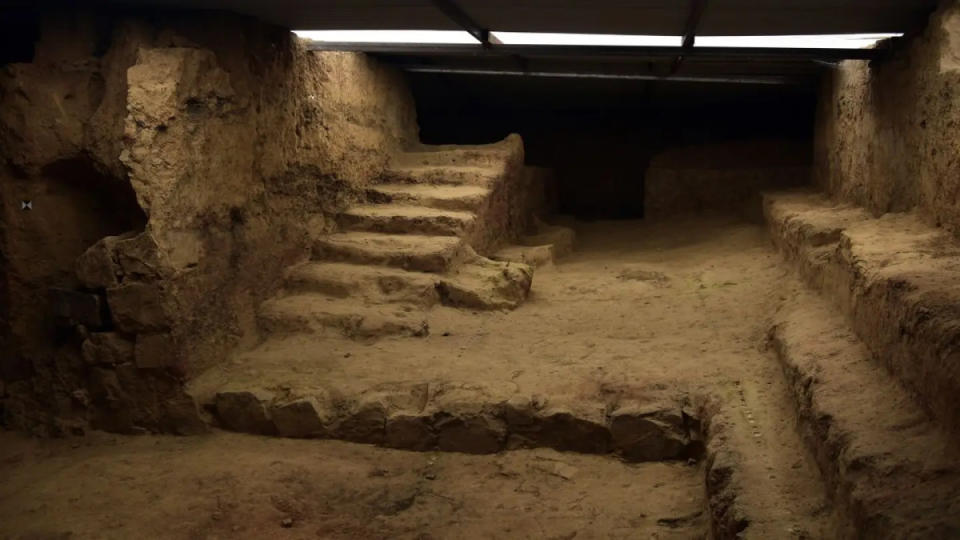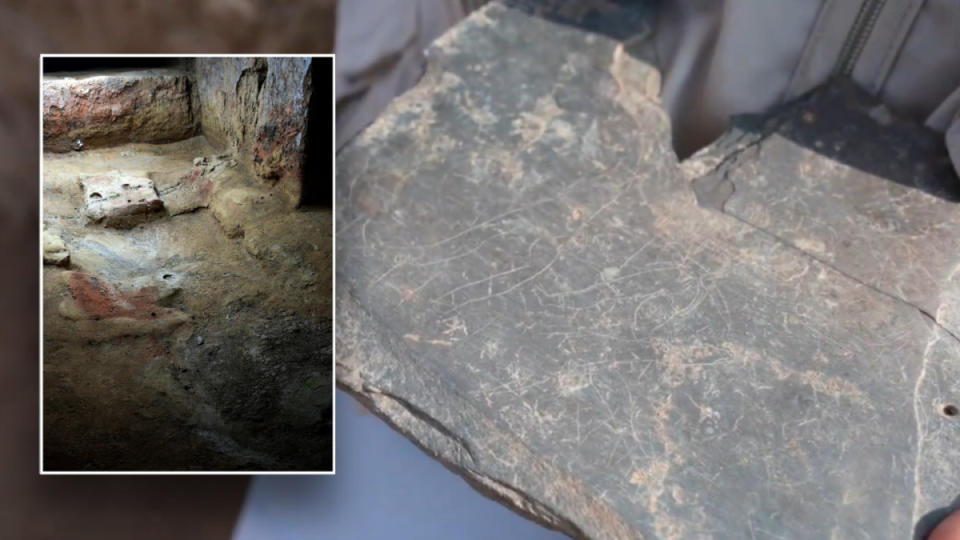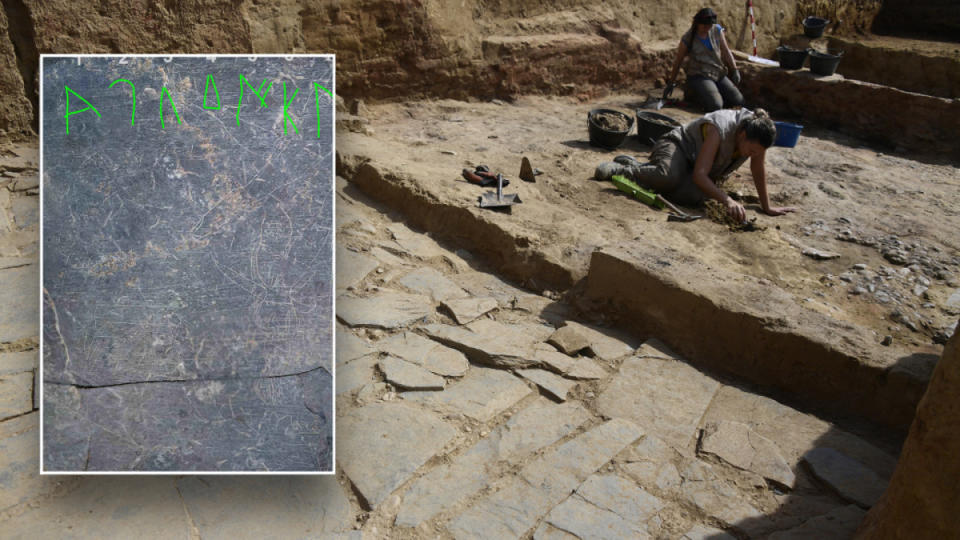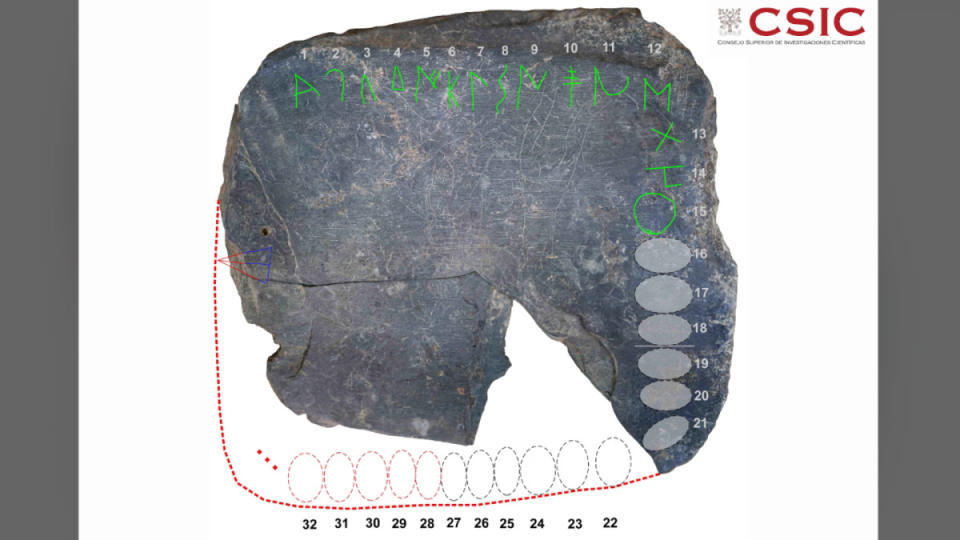Archaeologists Uncover Stone From ‘Lost Civilization’ Inscribed With Symbols
Archaeologists in Spain have discovered a stone from a “lost civilization” with an ancient alphabet inscribed upon it, Fox News reported. If researchers' hypotheses prove correct, the discovery could precede the Rosetta Stone by more than 400 years.
If scientists’ interpretation of the carvings are correct, this stone would be only the third "southern Paleo-Hispanic alphabet of which there is evidence" ever to be discovered, according to the Spanish National Research Council (CSIC).
The stone, measuring about eight inches in length, was uncovered in Badajoz, southwest Spain, in an area known as Casas del Turuñuelo, which houses Tartessian ruins. Officials believe it dates back to as early as 600 B.C.

Cristina Quicler/AFP via Getty Images

Getty Images / Spanish National Research Council (CSIC)
According to the CSIC, the stone is marked with 27 signs or letters. They believe that the slab they possess may be incomplete, hypothesizing that the original tablet contained about 32 characters.
"At least six signs would have been lost in the split area of the piece, but if it were completely symmetrical and the signs completely occupied three of the four sides of the plate it could reach 32 signs, so the lost signs could become eleven or perhaps more if a possible sign, ‘Tu’, isolated in the lateral quarter, were part of the alphabet," Joan Ferrer i Jané, a researcher from the University of Barcelona, told Fox News.
"Beyond the figures, when I looked at the plate, I saw that on one of the sides there seemed to be a Paleo-Hispanic sign, a sign that cannot be confused with any other," Ferrer explained. "Other strokes compatible with signs of a known sequence [were also seen]."
He continued: "This alphabet has 27 signs and is the only complete one we know to date. Another was found in the excavation of Villasviejas del Tamuja (Cáceres) but it is very fragmented, it only has some central signs… [this one] would be the third and would provide a lot of information."

Spanish National Research Council (CSIC) / Getty Images
The ancient civilization Tartessos was located on the southern edge of the Iberian Peninsula some 3,000 years ago. It’s considered a lost culture due to its few cultural artifacts, making the slab’s discovery a landmark in understanding the ancient city.
The slab is now part of a project called Building Tartessus, which attempts "to characterize the Tartessian material culture through the architectural analysis of the large adobe buildings excavated in recent decades and introduce the concept of architecture as an integrated element in the territory," the CSIC explains on its website.

Spanish National Research Council (CSIC)

